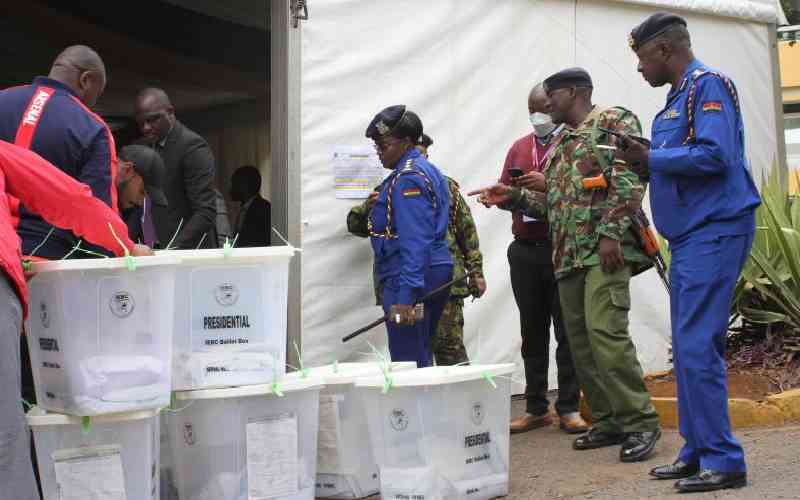Hoping for a perfect president in Kenya, it seems, is like waiting for Godot. Godot is a character in Samuel Beckett’s play, Waiting for Godot, in which two men wait endlessly for a person who never arrives. Although they are persistent and patient, they ultimately become disappointed.
This is a metaphor that aptly captures the Kenyan electorate’s perennial yearning for a perfect president: A visionary leader who will deliver prosperity, justice, and unity. Yet, for over six decades of independence, such a figure has remained elusive. Why do I say so?
Kenya’s presidential history is woven with ambition, contradiction, and compromise. For instance, while Jomo Kenyatta, the nation’s founding father, is remembered for stabilising a fragile post-colonial state and championing African identity, his legacy is shadowed by allegations of ethnic favouritism and unequal land distribution, particularly benefiting the Kikuyu elite. His contemporaries accused his administration of laying the groundwork for a patronage system that would haunt successive governments.
Daniel Arap Moi, who succeeded Kenyatta, ruled for 24 years with a blend of meek demeanour, but after the 1982 attempted coup, he changed completely. Yet, when he was pressured, Moi allowed multiparty democracy in 1992 and later handed over power peacefully in 2002. It is an act that earned him grudging respect even from critics. His curated image as a nationalist statesman still resonates with many who lived through his regime.
Follow The Standard
channel
on WhatsApp
In 2002, Mwai Kibaki’s presidency began with a wave of optimism. His technocratic style and economic acumen promised a break from the past. Indeed, his tenure saw significant infrastructural development and a revival of Kenya’s economy.
But Kibaki’s regime was quickly marred by internal sabotage, corruption scandals, and the 2007–2008 post-election violence. The coalition government that followed was a compromise born of crisis, not consensus.
The 2013 Uhuru Kenyatta administration ushered in a digital revolution in public service delivery and launched ambitious infrastructure projects like the Standard Gauge Railway. However, his legacy was burdened by a soaring cost of living and a ballooning public debt of over Sh8.6 trillion by the end of his term. Critics accuse his government of fostering a punitive political culture that stifled dissent.
We now have William Ruto’s regime, still in its early stages. His administration faces mounting criticism over heavy taxation and economic hardship. The 2024 National Ethics and Corruption Survey ranked corruption as the second most pressing issue in Kenya, after unemployment. Allegations of misuse of public funds and opaque spending have further eroded public trust, even in the absence of major scandals.
These presidential portraits reveal a sobering truth that Kenya still has not had its envisioned president. Let’s agree that even reform-minded leaders are often constrained by entrenched patronage networks, systemic grids and external pressures.
But the blame does not rest solely with those who come to power. The electorate, too, plays a pivotal role in perpetuating mediocrity. Voting patterns frequently reflect ethnic loyalty or financial influence rather than ideology or integrity.
It is a culture that undermines democratic accountability and reinforces a cycle of disappointment. According to the Ethics and Anti-Corruption Commission, corruption is most prevalent in public institutions. Statistics show that we lose an estimated Sh608 billion, which is around 7.8 per cent of our GDP, annually to corruption. In such an ecosystem, even the most well-intentioned president is likely to bow to state capture.
What then is the cure? We need to work on the current realities of our national mindset. Unlike Vladimir and Estragon in Beckett’s Waiting for Godot, Kenyans must abandon passive hope and actively cultivate a culture rooted in truth and integrity.
As long as we continue to penalise honesty and reward mediocrity, the vision of an ideal president will remain an illusion. It is also a contradiction that a president becomes ‘good’ when they leave power. We never have confidence in a sitting regime. What kind of a disease is this?
Dr Ndonye is the Dean of Kabarak University’s School of Music and Media
Follow The Standard
channel
on WhatsApp
By Michael Ndonye


